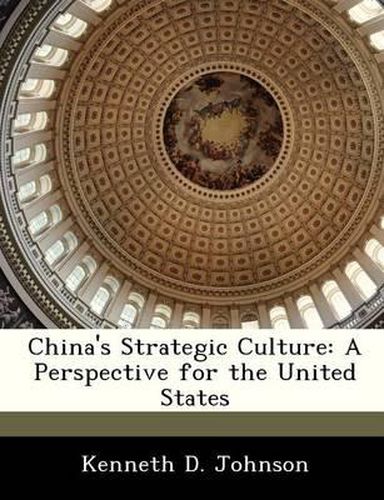Readings Newsletter
Become a Readings Member to make your shopping experience even easier.
Sign in or sign up for free!
You’re not far away from qualifying for FREE standard shipping within Australia
You’ve qualified for FREE standard shipping within Australia
The cart is loading…






For the past 2 decades, the People’s Republic of China (PRC) has made great gains in national development and economic growth and now stands as one of the most important states on the world scene. It is extremely important for U.S. policymakers to have a contextual understanding of what shapes Chinese thought and behavior thus driving Chinese political, economic, and military imperatives. With much of the American public accepting the “China Threat” theory, it is critical that the United States recognize the role of strategic culture in shaping China’s domestic and external policies. This paper illustrates the key characteristics of Chinese strategic culture-philosophy, history, and domestic factors that, to a remarkable extent, structure the strategic objectives of China’s formal foreign policy and explain how Chinese strategic interests are defined by modern Chinese pragmatic nationalism, its drive for modernization, and the desire for China to have a more prominent role in the Asian and world communities. A concluding analysis of the implications of Chinese strategic culture offer recommendations for U.S. national security policy.
$9.00 standard shipping within Australia
FREE standard shipping within Australia for orders over $100.00
Express & International shipping calculated at checkout
For the past 2 decades, the People’s Republic of China (PRC) has made great gains in national development and economic growth and now stands as one of the most important states on the world scene. It is extremely important for U.S. policymakers to have a contextual understanding of what shapes Chinese thought and behavior thus driving Chinese political, economic, and military imperatives. With much of the American public accepting the “China Threat” theory, it is critical that the United States recognize the role of strategic culture in shaping China’s domestic and external policies. This paper illustrates the key characteristics of Chinese strategic culture-philosophy, history, and domestic factors that, to a remarkable extent, structure the strategic objectives of China’s formal foreign policy and explain how Chinese strategic interests are defined by modern Chinese pragmatic nationalism, its drive for modernization, and the desire for China to have a more prominent role in the Asian and world communities. A concluding analysis of the implications of Chinese strategic culture offer recommendations for U.S. national security policy.